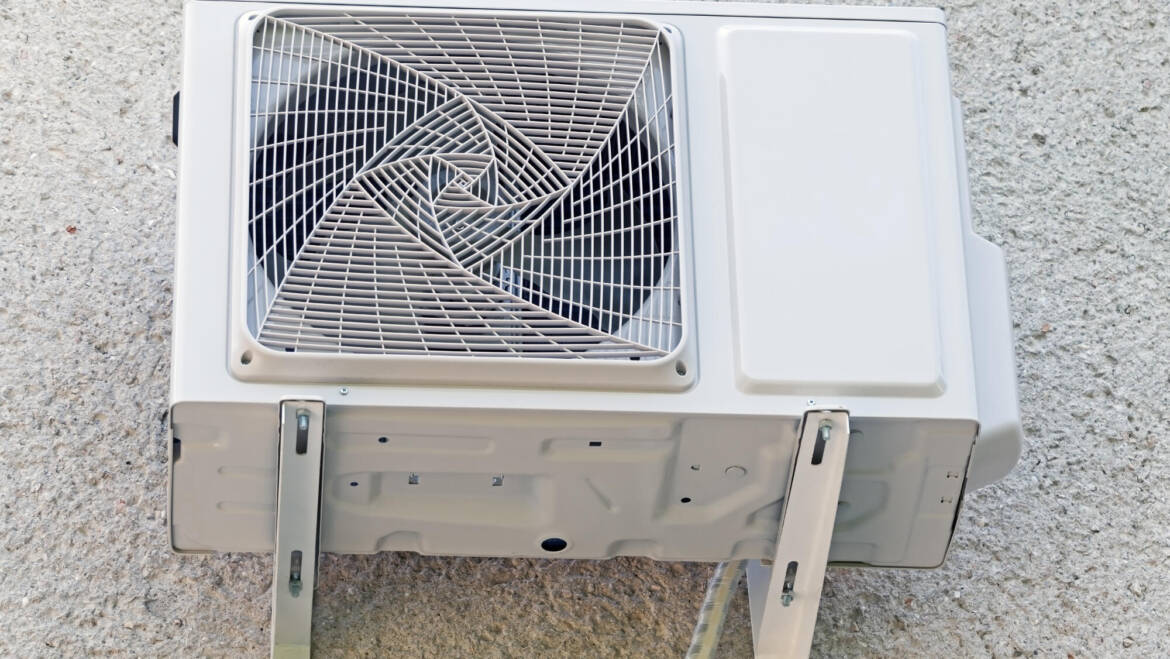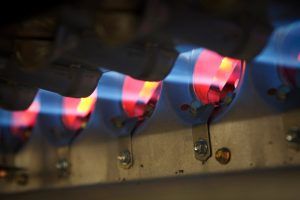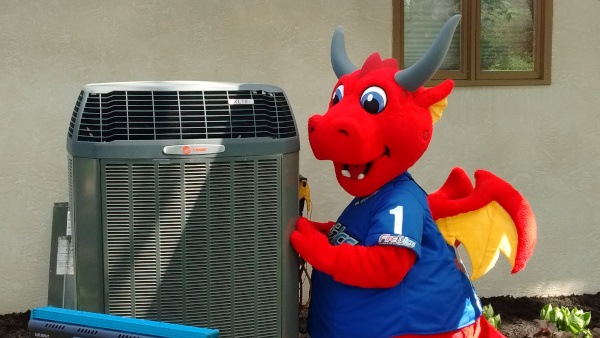Experts project Jacksonville, FL, to have 84 days with temperatures between 90° and 100° Fahrenheit this year. Even more concerning, they forecast the city to experience 42 days when temperatures may exceed 100° F!
The good news is that you can avoid the risks of such hot days by staying in your air-conditioned home.
But what if you notice your air conditioner leaking water? Is this a big problem, and what caused it in the first place? What can you do to address the issue before it results in worse complications?
This guide explores the answers to all those questions, so read on.
Is an Air Conditioner Leaking Water a Big Problem?
If your air conditioner leaks water excessively, then yes, it can be a big problem, as it can lead to costly water damage. Water leaks can also result in higher indoor humidity levels.
The longer those problems exist, the more likely you’ll deal with mold issues, too. After all, molds thrive in damp environments. They can then release their spores into the air, leading to poor indoor air quality (IAQ) and adverse health effects.
Water leaks may also be a symptom of more significant AC problems, such as refrigerant leaks. The latter can cause the system to perform inefficiently or even break down and fail.
Why Is It Leaking Water Anyway?
It’s normal for air conditioners to “produce” water during the cooling cycle. That water is condensation, which forms as hot, humid air comes into contact with the AC’s cold evaporator coils. The coils (and the refrigerant passing through them) absorb heat and moisture from the air, “cooling” the air down.
The condensation drips to the AC drain pan below the evaporator coils. This pan has a connected condensate drain line, which channels the collected water out of your home.
If those components become damaged, your air conditioner may leak water. While these issues can happen year-round, they’re more common in summer, as Jacksonville’s average humidity levels exceed 70% during this season.
Clogged Drain Line
Dirt, dust, debris, and pet dander can settle on your AC’s drain pan over time. The water dripping into the pan can turn them into a gooey mess. That can result in the condensate drain line becoming clogged.
A clogged drain line won’t be able to channel water out of your home, so the water will just stay in the pan. The water level in the pan will then rise as more droplets drip from the coils. Ultimately, all that AC condensation build-up will overflow and leak out.
Problems With the Drain Pan
Older air conditioners have drain pans made of metal, such as galvanized steel. Constant exposure to heat, moisture, and other contaminants can cause these pans to rust, causing them to leak water.
Newer AC models use durable plastic drain pans. While rust-resistant, they can still deteriorate, warp, and crack, causing them to leak. Improper installation, such as if they don’t sit straight, can also cause them to overflow.
Frozen Coils
An air conditioner leaking water can also be due to iced-up or frozen AC evaporator coils. This problem can happen if the coils become coated with dirt, dust, debris, and grime. It can also result from refrigerant leaks.
As more ice forms on the AC, more water will drip down the drain pan as it thaws, ultimately causing the pan to overflow.
What to Do if Your AC Leaks
First, turn your air conditioner off. That’ll stop its cooling cycle, preventing it from creating more condensation.
Next, don some personal protective gear, including rubber boots, gloves, a face mask, and eye protection. Then, wipe or mop the area where the water has overflowed.
You can then proceed with the following leaking AC troubleshooting steps:
- Remove the access panel of your indoor AC unit (you may have to unscrew a few bolts)
- Use a flashlight to inspect the condensate drain pan and line for water and clogs
- Get as much water out of the pan as possible with towels or a wet/dry vac
- Rinse the pan and line with vinegar to clear out mold and algae
As you perform the steps above, be mindful of water that may drip down the pan. Remember, your AC is currently off, so it shouldn’t produce condensation. If it does, especially constant droplets, you likely have frozen evaporator coils.
In that case, it’s best to call a licensed HVAC company near you as soon as possible. They’ll diagnose and fix the problem before it worsens and causes your cooling system to fail.
Preventing Future Leaks
Professional air conditioner maintenance done every spring is one of the best ways to keep AC problems, including leaks, at bay. During one, you can expect a professional and experienced HVAC technician to:
- Thoroughly inspect the AC’s critical parts, such as refrigerant lines, coils, and drain system
- Clean the drain pan and line
- Check and tighten electrical connections
- Calibrate the thermostat
- Lubricate moving parts
- Inspect and replace air filters as needed
Depending on your AC maintenance plan, the technician may check for refrigerant leaks. If they discover any, they’ll inform you, and you can have them fix the leak and top up the refrigerant. They may also apply a protective treatment to your system and drain pan to minimize future mold and algae growth.
You should also inspect your AC filters monthly between service schedules. If you have pets or live near a busy street, you may have to replace them more frequently.
Stop AC Leaks
Whether it’s a clogged condensate drain line, an overflowing drain pan, or frozen coils, these can all result in an air conditioner leaking water. Regardless of the cause, you must address them ASAP before they cause costlier problems, such as water damage, mold, or complete AC failure.
The HVAC experts at Charlie’s Tropic Heating & Air Conditioning can help track and fix the cause of your leaking AC. Since our company’s establishment in 1998, our NATE-certified technicians have served residents of the First Coast community with high-quality HVAC services. We’re also proud of our numerous 5-star Google reviews from happy customers.
So, contact us today! We’ll gladly provide a free estimate and get the AC in your Jacksonville home back in good working order.
Whether you require installation, repair, or maintenance, our technicians will assist you with top-quality service at any time of the day or night. Take comfort in knowing your indoor air quality is the best it can be with MOE heating & cooling services Ontario's solution for heating, air conditioning, and ventilation that’s cooler than the rest.
Contact us to schedule a visit. Our qualified team of technicians, are always ready to help you and guide you for heating and cooling issues. Weather you want to replace an old furnace or install a brand new air conditioner, we are here to help you. Our main office is at Kitchener but we can service most of Ontario's cities
Source link




Add Comment